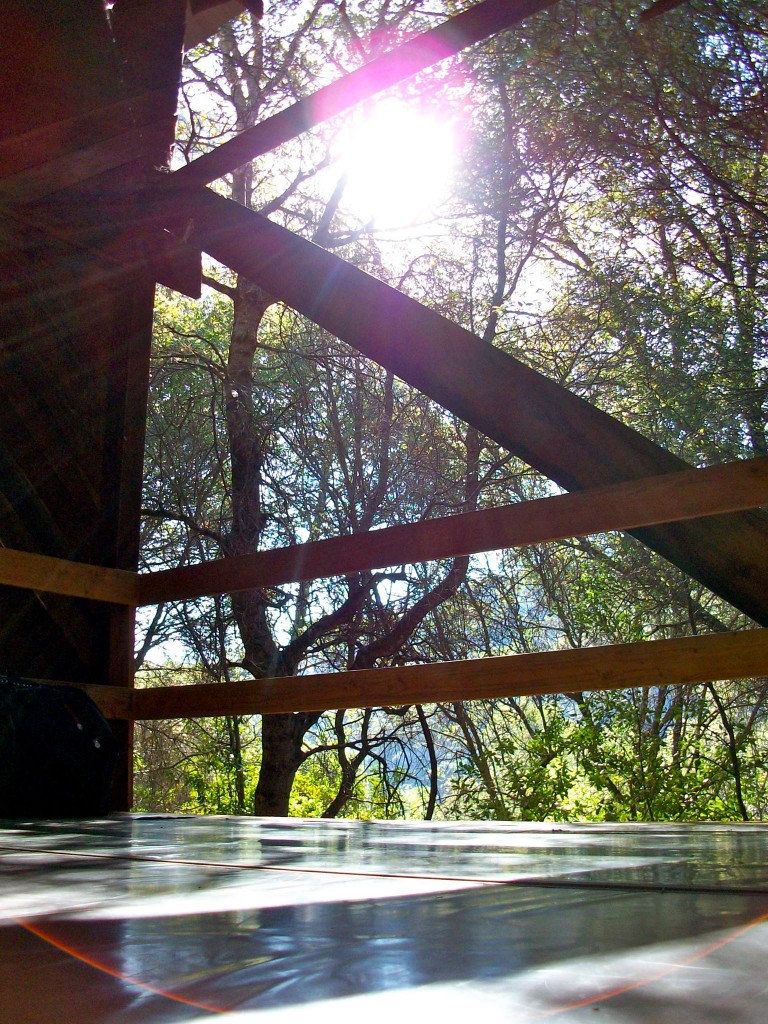The root is rotting
June 12, 2020
The root is rotting: a love letter to the movement
Protest
Semi-trucks are blaring their horns as we march with the mass of bodies, turning the corner from Canal onto Broadway in SOHO. We are quickly swept into the irresistible current of sound and sweat, signs bobbing up and down above heads, chants syncopated against each other. The sun burns hot and the air is thick and wet. We’re here because Black lives matter.
I have never seen this place like this before. It reminds me of stories I heard about New York in the 70’s and 80’s when neighborhoods like SOHO where considered dangerous (when I say dangerous I mean there were lots of Brown and Black people around). The narrative about American cities over the last 50 years is tattooed into my mind: industrialization, the creation of the suburbs, White flight, and the concurrent demise of the “inner city” as they called it back then, because the White folks took all their money with them and didn’t look back.
But the people (when I say the people, I mean “the people, united, will never be defeated”) lived and loved and breathed life into the cities that the Whites abandoned. They build it anew with their own hands, with neighbors and “sweat equity.” Dangers and challenges remained but they lived, until the tides of real estate turned again. Developers (when I say developers I mean land speculators, conquistadors, colonizers) looked once more to where they could exploit value and make a profit, and what follows is the familiar story of gentrification within which we are enmeshed.
New York City often feels somewhat uninspiring to me because so much of it has been spoken for. The beauty of a city that has the markings of human hands on it has been replaced by sterile developments, things that are too beautiful, too smooth, too plastic to feel alive.
But on this day that we marched up Broadway things felt different. Since the pandemic officially took hold, those with money and means have left town. Perhaps they have gone to their second homes upstate or on Long Island. Maybe they have gone to stay with family out of state. Hell, some of them are probably in Ibiza or some other island wealthy people escape to which I wouldn’t know about. And maybe a few are still in their penthouses way up above our heads, living off of deliveries and workers that cannot afford not to keep working for them.
But regardless, it feels like the city is mostly us – us workers, us Brown and Black folks, us poor folks, us protesters, us renters, us artists, us Gen Z’ers and Millennials, us immigrants. It’s a small taste maybe of what the 70’s and 80’s felt like when the Whites flew out of town and left the people with the land.
Maybe I’m imagining it, but the apparent absence of obscenely wealthy people makes the city a place I love to be in. There are no fancy stores or expensive restaurants open. There is no where to go to show off your outfit and sip a cocktail as you try to look important and shiny. No networking and nothing non-essential to consume. And no one smelling of superiority because they have more money than you.
We are in charge. There are truck drivers and Uber drivers, grocery store clerks, and nurses. And then there are the folks hired, as of this week, to board up the windows of every high-end store on Broadway, to protect from the well-earned rage of these protests. It is a sight to behold: SOHO has been closed for weeks, but now it’s being covered over with wooden boards. But a handful of those boards have already been colored, painted, sprayed and tagged by the people (“united, will never be defeated”). Are we taking the city back?
Semi-truck drivers honk their horns to our songs or in long, defiant streams of sound. In one absolutely rapturous moment as we march up Broadway, we hear a rhythmic hammering sound. As we approach the sound, we see him, one of the men hired to board up a store, striking a board in the rhythm of our chants, then looking back at us with a bright, expectant gaze, sweat glistening against his face. His eyes say, “I may have to be here doing this job for my absentee boss, but you better fucking believe I am marching with you too.”
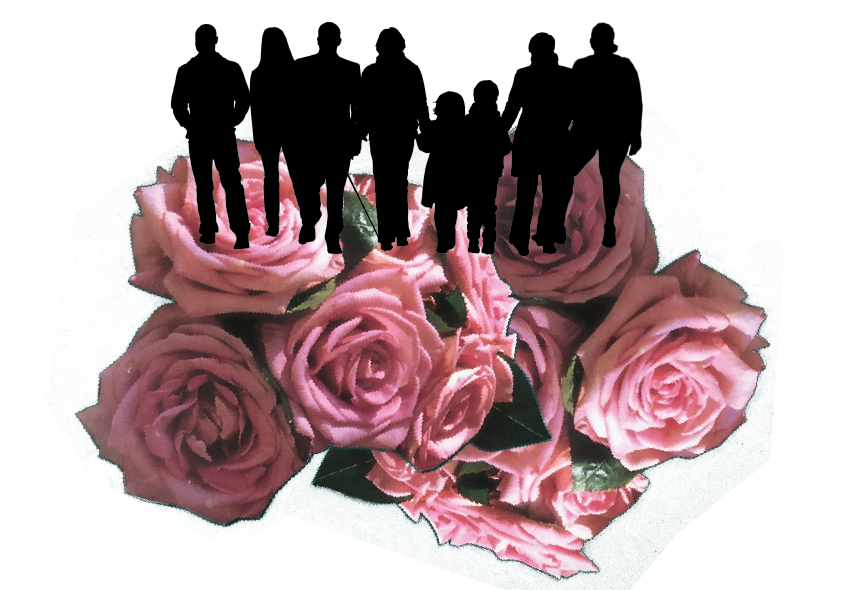
Love
The rapture of love, I have felt it in different times. Oftentimes on a dance floor, sometimes in the commitment to see and be with another in their vulnerability. But also, many many times in the streets, in protest. I am often so in love when I am protesting with others – our collective bodies merged as one, swirling through streets.
My parents first met at a party in post-revolutionary Iran, where those who had survived the violent upheaval drank, joked, and commiserated about the hell they had just been through. Somehow this story of them meeting in wild, revolutionary times and falling in love has shaped me deeply.
I feel safest in the river of your bodies washing down streets, held in the pulse of your steps. I can lose myself.
We are still tender and permeable. It has been quiet, and now it is loud. Can you hear the sounds of many hearts breaking?
I love being in the streets with you. Loving you, like this, bending towards a dream we all came into the world believing. It glimmers within us still.
My comforter lays rumpled on my bed in the new heat of the warming season. Sometimes when I am alone in this room I wonder, what’s the point of this. Of anything. Sometimes I forget how much I’m in love with you.
I want to pull bright rolls of ribbon from my doorstep through the streets to yours, so that the city becomes a chaotic mess of pinks, reds, greens and blues; lines to show you the way to me.
I want to dig a hole by the edge of the park with one of those excavators that’s been sleeping in Gowanus, and fill this hole with water for you to swim in all of the hot summer.
I want to plant thousands of fruit trees in this town to feed you apricots, apples and peaches every year. I want to put them there for you.
I want us to be together. I want to take care of you. I want you to take care of me.
Profit
There have been hundreds of thousands of people in the streets for more than two weeks now. And for all the protests I’ve been to before this moment, I’ve never seen so much care work happening. Water bottles, granola bars, sandwiches, hand sanitizer, and masks distributed every half block; people sage-smudging the paths of protesters. Jail support is plenty full with volunteers. Donations for bail funds are overflowing. Theatre lobbies are open during protest hours for rest, wifi and recharging. All of this because we want Black liberation like we want nothing else in the world. We want our Black folks to be free. We know that it is the only way for us all to be free.
Would any of this be possible without a pandemic that has halted the economy, closing schools and the majority of public establishments? And while essential workers continue to work and sustain our lives, many of the rest of us have had the time to be on the streets. This is what we would be doing in the absence of the forced coercion of a quotidian capitalist regime determining the structure of our days.
Working for someone else’s profit, also known as capitalism, is its own kind of slow violence to which most of us have become numb. We awaken in this forgiving, breathing world only to have our precious hours, days, weeks stolen by a normalized demand to work so someone else can benefit.
Can anybody hear me? Is anyone else feeling this?
But this unforgettable show of solidarity is what we would do everyday if we weren’t forced to labor for someone else’s profit: we would be gathering, dreaming up better worlds, healing the earth, singing, loving and feeding each other.
This is how good we are. We love being with each other. We love our world.
Work
One of the things I most clearly remember my father saying to me when I was young had to do with work. He said, “Raha, our nature as humans is to work. That is what we are here to do.” He spoke of work with such esteem, it made me want to be a worker; made it look like a prideful thing.
But the goodness in people that makes us want to work to support the world is exploited by a handful of people. These people don’t work themselves but they take advantage of the fact that most humans find meaning in doing good work. So here we are, trying to do something in the world that means something, that helps someone. And there they sit, getting rich over our good, open, loving hearts.
I dream of a world where everyone returns to their rightful place as a worker, an essential worker of some kind, contributing to the whole. We don’t need anyone stealing the fruits of our labor. We don’t need anyone making billions over death, toxicity and destruction, Jeff Bezos. We need no CEO’s and no slave masters.
In this world, we own our labour. We benefit directly from the work we do.
In this world, I would wake in the morning excited to be with you, to toil in ways that make your life and my life better.
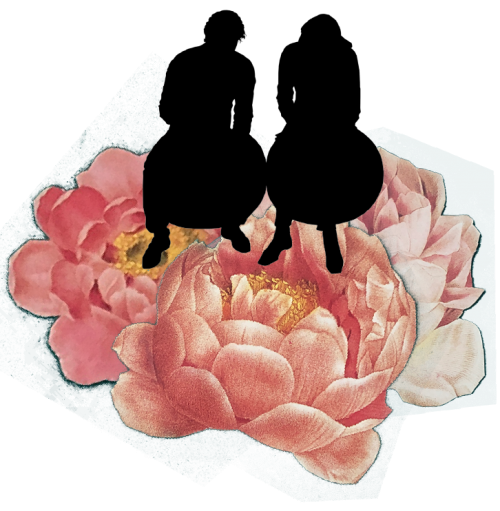
Looting
There are many complicated ways to talk about very simple things. Like greed, hoarding, and theft. What are the origins of looting?
How about claiming a people’s land as your own, nearly exterminating them, and stealing all of their resources? How about looting populations of humans onto ships and then looting their labor and their children’s labor for generations? How about declaring war on far-off nations as a way to justify looting the oil under their feet so you can have more things? So yeah, looting.
But after all that looting, you might be scared that the people will catch wise and come for you. Much has been stolen so you have much to lose. Enter a security force to protect your stolen goods, also known as the military and the police, to “defend and protect” not the people but the literal centuries of stolen wealth hoarded by the owning classes.
“Money,
we make it,
before we see,
you take it” ¹
De Blasio instituted the New York City curfew because some folks were breaking into and “looting” stores. That is to say, he mobilized the power of police to protect the assumed private property of wealthy people and corporations when it looked like the people were stealing back.
I wonder if he and others like him are losing their shit because we’re in the streets demanding things be different. I wonder if they are trying to figure out how quickly they can send us back to work, and get us off the streets. Keep us preoccupied and exhausted by the prerogative of paying rent, food, utilities (working for your survival is not a choice. Let’s refer to it as wage slavery).
What I’m trying to say is capitalism is white supremacy.
Police
The police as we know them evolved from slave patrols: people hired by slaveowners to return fugitive enslaved peoples back to them. The police as foot soldiers to protect the looted goods, and this case human lives, claimed by the master.
But many who have been recruited into the police force or into the military are working class and poor folks looking for a way to survive in this violent economic system. They become pawns sent to die for the nation when they join the military. Or they are hazed and dehumanized in training to become police so that they can unfeelingly act in ways demanded by those who hire them. Cops are trained to see the world as one in which there is always a violent emergency; PTSD as workforce development. This isn’t going to work.
In a capitalist state, the police are the enforcement arm of the state. They state commands, the police enforce. A demand to defund and abolish the police means removing the armed buffer between the owning class and the people. No more police doing the master’s dirty work.
In the aggressive and violent arrests that were happening by the police on these streets, at times I was overcome with the sense that the wealthy and powerful had escaped the scene, leaving the police and the people on the streets to duke it out. The police armed to the helms with the power of the state behind them, but pawns all the same. And us, defending ourselves against their violence and intimidation, unleashed in the name of protecting the status quo of a white supremacist state.
What would happen without police? The charade of the wealthy hoarders would be quickly revealed and we wouldn’t tolerate it. Marie Antoinette comes to mind.
Racism
We look back at the founding of this nation with horror: genocide, ownership of humans as property, enforced labor for the profit of a few, also known as slavery.
And today? Black bodies murdered for existing, poverty criminalized, prison labor is legal and legitimatized slavery, and if none of those apply to you, then your life is spent working to produce goods for your master’s profit in exchange for a paltry wage with which you can eat and house yourself, while you delude yourself into thinking you’ve reached your human potential.
Coerced labor for someone else’s profit, also known as capitalism. They don’t technically own you, but you do have to devote 40 or more hours of your week making them rich.
Why haven’t we burned the slaveowner’s castle to the ground yet? Why has Amazon made 75 billion dollars in profits over the months of a global pandemic? (And if you’re wondering, Jeff Bezos’ net worth as of this writing is 153 billion US dollars, which, as far as I’m concerned, is just a really really really big number).
One of the reasons is the same reason we are in the streets. Because racism has divided us, the people, in ways that have made organizing against profiteering nearly impossible. Race is a social construct used to divide the working class so that it can be manipulated by those who seek to profit from us. An ancient strategy: divide and conquer.
By lording over the imaginary privilege of racial superiority over assumed racially inferior others, the person who becomes White can feel that he has at least his race going for him. This was the strategy used by the owning class settlers of what became the US to separate servants from slaves, and in keeping them divided, weaken their power to collectively organize. In the streets full of protest right now, we are refusing to believe this lie, this wedge between the working class: anti-black racism.
To refuse the myth of racial superiority and inferiority, to truly find solidarity with and in each other: we would be more powerful than their worst nightmares.
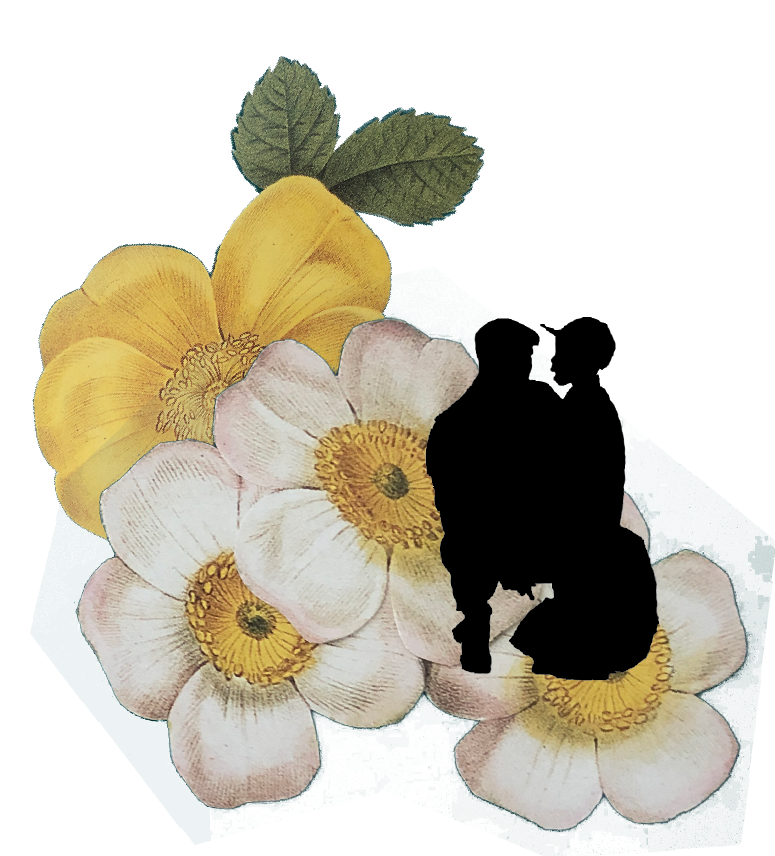
Dreams
Aurora Levins Morales says that any dream that appears to be in conflict with another dream is just too small of a dream.² In my dream, the police dissolve and all that remains are humans who have been hurt a great deal, who turn away from what they have been coerced into doing and towards the rest of us.
In my dream, all those enlisted in the military realize they have been taken advantage of by a violent state that has no interest in their well-being. They sabotage their posts. They cook meals and read to the children of the people whose lands they have been occupying. They rebuild the cities they have destroyed. They weep for themselves and for those that have been killed at their hands.
The root of this nation is rotten and the stench is getting so bad, only the most delusional will miss it. What I’m trying to say is, let’s get all the rot while we’re here picking at the soil. You can’t solve the problem of too many people in jails with more incarceration. You can’t weed out a few “bad” cops and leave the system be. We have been treating systemic problems as individual problems for far too long.The root is rotting. Pulling a few leaves off won’t get rid of the stench.
I don’t want to live in a world where Black lives merely matter. In my dream Black lives are treasured and Black joy runs the world. In my dream, this land becomes Native once more and we kneel on the earth, listening closely for answers.
Let’s stay hot and mad. Let’s build a world mirrored after the level of care out there in the streets. Let’s make taking care of each other our lifelong vocations.
¹ Marvin Gaye, “Inner City Blues (Make Me Wanna Holler”)
² From Medicine Stories: Essays for Radicals, by Aurora Levins Morales
Thank you:
To Efadul Huq, Angie Pittman, Dan Schwartz, Amanda Rouse and Stevie May for feedback and conversations that informed this writing. To Virginia Broyles for the flowers and design support.
Silhouette images courtesy of Nonscandinavia: http://www.nonscandinavia.com/
Comments (0) | More: Uncategorized
collage
December 12, 2019
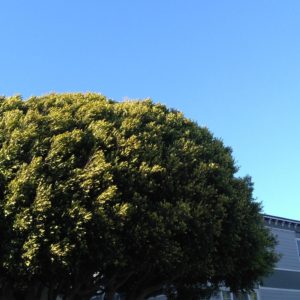
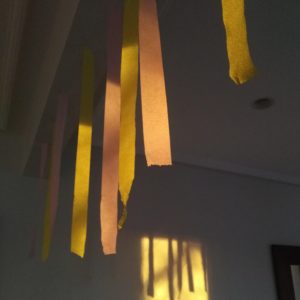
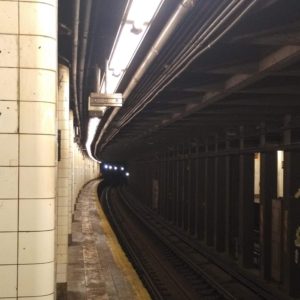
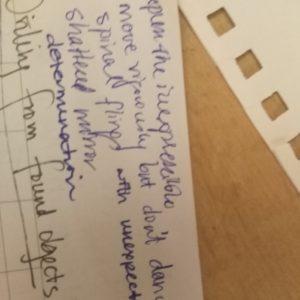
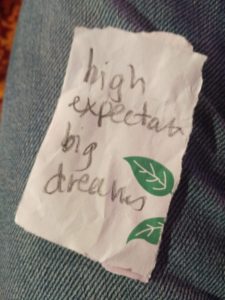
Comments (0) | More: Uncategorized
On Grief
June 08, 2019
This piece was written for the closing reception of a gallery exhibition at EFA Project Space, curated by Jillian Steinhauer. The exhibition was entitled “In the Presence of Absence”, and considered the themes of grief and loss.
On Grief
May 11, 2019
I was asked to share some writing at the closing of this exhibition. I believe I was asked to participate in relation to a project I have been working on called Heirloom Zine, a project which has taught me great things about culture, loss and the violence of assimilation. I have learned that assimilation is the means through which an individual self experiences systems of imperialism, cultural genocide, and global domination.
But today, I would like to focus on grief as a phenomenon rather than talk about Heirloom. First, I would like for us to notice our togetherness in this room. Togetherness is our greatest resource, and it has everything to do with grief, loss and healing. Because every burden is too heavy for just one person to bear.
Grieving is an at. It is something we can do. But it requires our togetherness. I see you and you see me. We grieve each with a completely unique experience of what our grieving feels like and what it is about. Yet we must witness and hold space for each other for grieving to be successful. One of the points I really want to make today is that loss is almost always a consequence of systemic inadequacies. Our losses are not isolated incidences, and it is not precisely death that haunts us, but the means and the meaning. We suffer or we witness suffering that is caused by oppression, whether it is economic, gendered, racialized, or class-based. What I mean is that grief is not just personal to you or to me. It involves all of us and the systems that govern our lives. Healing, therefore, must also involve us all.
What we need to grieve are the many systems that rob us of our full humanity and create suffering in the world. When we gather, and hold space for each other, and allow ourselves to plumb the depths of our feelings, we eventually come out the other side. There is no bottomless pit even if it sometimes feels that way. This process, this digestion of emotion in collectivity or as ritual is as ancient as we are. It is a practice that humans have somehow known to do – as birds know to fly south in the winter – and so we have done it. It is an alchemical process that transmutes suffering into something else; into the appreciation of life again and into new understandings.
We have known to do it, except when we haven’t. Our culture as infiltrated as it is by capitalism and the monetization of time, has directly assaulted our togetherness and our wisdom of the ancient practices of collective grieving. Let’s interrupt the systems that attempt to precent us from even our innate, human capacity to heal. Because that is what grieving does. We grieve in whatever way we must, we allow our hearts to break for every soul that has suffered at the hands of human systems, until we come out the other end anew.
There is no telling how long any one grieving process will take. And it is recursive, non-linear and unpredictable, like creative process is. It does not happen in neat pockets of time around your nine-to-five work day. So instead, we can demand the space to feel and grieve as a universal human right, untouchable by the desperate exigencies of capital. Our world would begin to look very different.
The common aphorism “hurt people hurt people” holds true. Demanding space for grieving can tangibly shift the trajectory of the future. It might be one of the most radical shifts we can make, as more and more of us begin to act from places of healing rather than pain. Grieving turns a wound, into a scar that becomes a beautiful tattoo, a memory integrated as a soulful part of us. We digest the hurt and obtain its nutrients, the lessons that particular wound offers us; the diamond within the rough.
This exhibition propels me to imagine new possibilities for art galleries and other such spaces, as spaces to feel together. Places to become vulnerable in the soft arms of each other. To look, see and share in loss and in life.
Comments (0) | More: Uncategorized
The Beginning
March 06, 2018
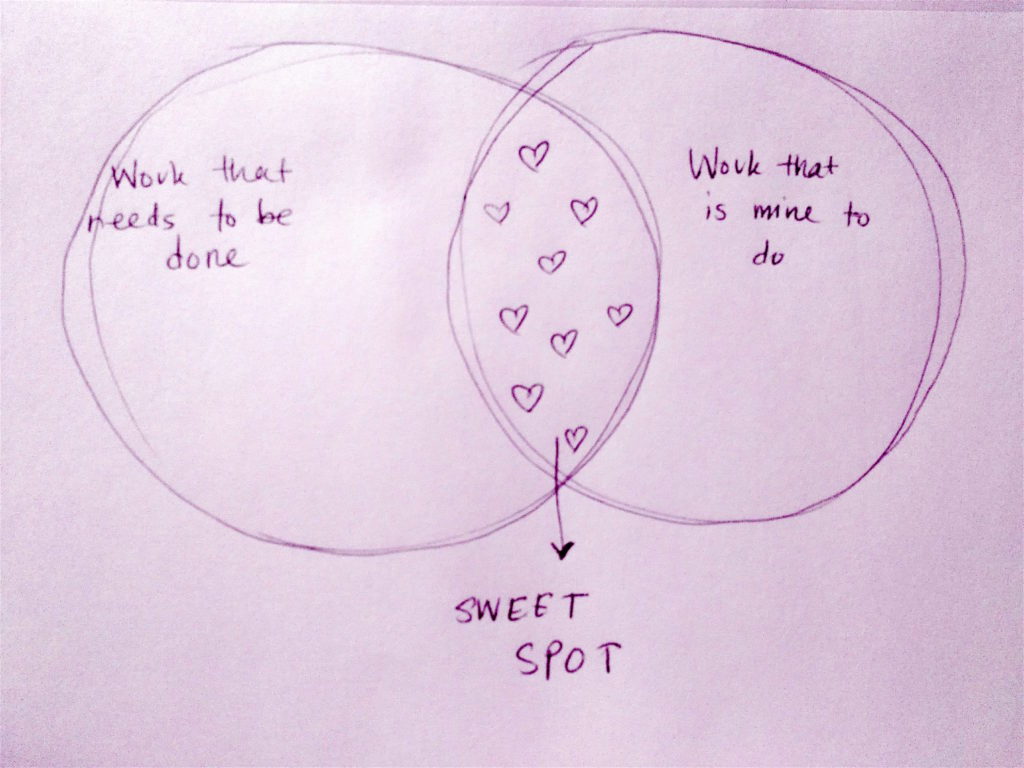
Forgetfulness is not always a benign occurrence.I forgot because the external world did notendow my remembering with any value.
Comments (0) | More: Uncategorized
If they go to war with my people
January 31, 2017
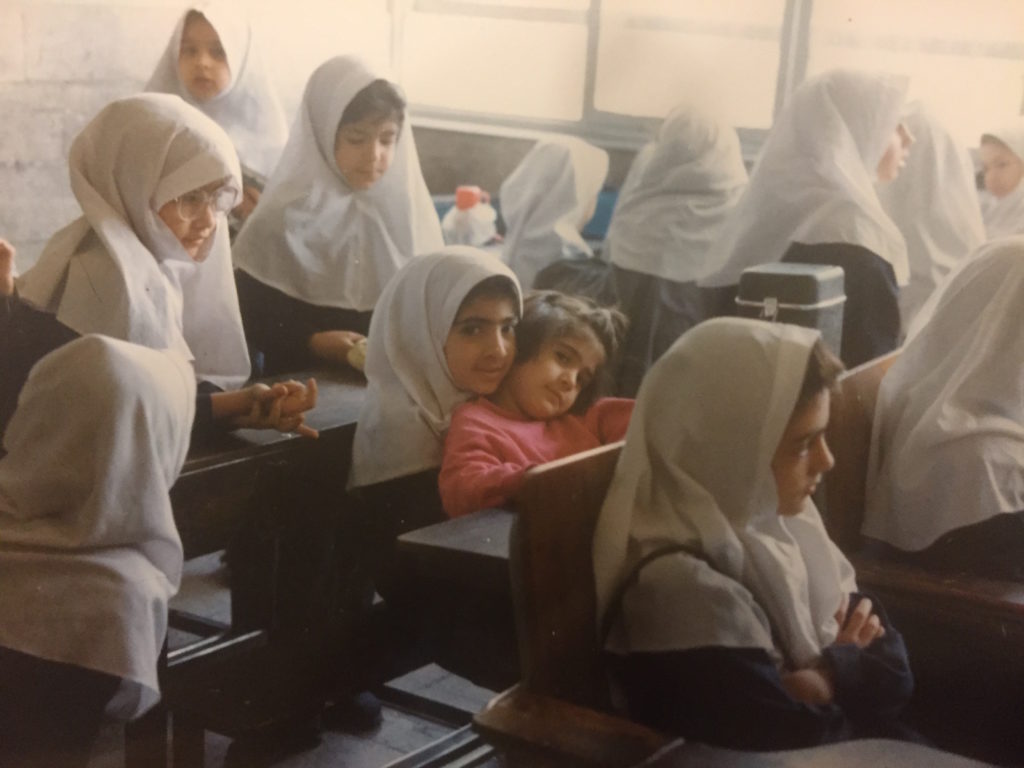
That is a photo of me at 7 years old, in my First Grade class, with my sister in my arms. I loved getting to wear the navy coat and white head covering because it meant I was growing up. Right now, I am working on growing my eyebrows back out to the way they were then.
I have recently made new friends with my body. I don’t mean this in the trite way it is usually expressed when people say “I have learned to love my body.” I mean that I recently had an experience of viscerally being in awe-some gratitude of the physical existence of my body. A few weeks ago, I wept in shame and regret for all the times I pushed it too hard, or neglected it. I felt sorry for criticizing it as a daily practice, rather than marveling at its fantastic functional abilities. I have a good, good body, I thought. And this time, I really felt it.
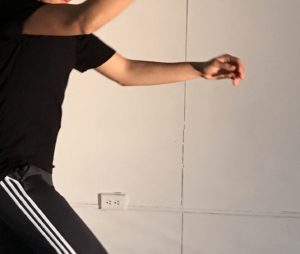
I spend time remembering my childhood: From the beginning the seeds were sown for me to feel somehow different, strange, unlike the masses. Outside home, I heard a great deal about God and the importance of God in one’s life. I thought that I loved God, and imagined her as a benevolent “she.”
At home, my parents challenged my feelings. They told me about the atrocities committed in the name of religion – about murders and hangings of their own friends. Sometimes, I just wished they would believe in God like everyone else, so I could feel normal.
At school, I was taught to chant “death to America.” At home, I was told that this hatred was a consequence of governments in conflict, and not a statement by or about the people.
At school, I learned to read and write in Farsi. At home, I recited poetry, danced, and sang Persian songs. At bedtime, I delighted in my father’s voice recounting the narrative of evolution, where tiny floating cells became fish, birds and mammals. Everything had worldly import.
Before my family and I left for Canada, I remember my mother’s sister saying to me: “You’re so pretty, when you go to Canada all the boys will fawn over you.” Nobody knew about racism and internalized oppression. Everyone looked forward to our perfect, amazing life in the West.
Besides, my parents had given me too much understanding to believe that whatever could be purchased by good looks would be enough for me. They made sure I would want more, for better or worse.
Friends, your love and affection so powerfully contradict the hateful terror of everything, that I am moved to sudden, violent tears. These tears heal broken pieces of my soul. I am grateful for the ends of tree branches in the dead of winter, and for earth that I can walk on. As long as these things exist, I will make it.
Comments (0) | More: Uncategorized
A timely imaginary
November 20, 2016
An excerpt from Dangerous Border Crossers by Guillermo Gomez-Pena
“The Self-deportation Project, 1995
Let’s exercise our political imagination for a moment. It is the immediate future in a typical US city, which is to say, a city full of immigrants, people of color and people who speak other languages… like Spanglish. You perceive yourself as an ‘angry white male,’ but no one knows about it. Not even your beautiful ‘Hispanic’ wife or your interracial kids.
You wake up one day and go to work. You need to stop for gas, but the gas station is closed (You don’t know that all the attendants went back to Old Mexico the day before.) You drive around looking for an open gas station until you run out of gas. You call a cab, but there are no cabs because the drivers, mainly Latino, quite the day before. Somehow you make it to the office to find your colleagues watching TV in total disbelief. A nervous President Clinton is pleading for all unemployed Anglos and African-Americans to show up immediately to the closest emergency labor recruitment center. The country is paralyzed. The disappeared Latino labor force must be replaced overnight.
At lunch time you discover that most restaurants are closed. Someone explains to you that the chefs and the waiters were all part of an epic self-deportation program. Since you are fairly apolitical, you still don’t quite get it. Many stores and hotels are closed (for obvious reasons) and the banks are going crazy. All across the country, millions of Mexicans, with their suitcases in hand are lining up at bank counters to withdraw their accounts on their back to their homelands.
You begin to worry about your family. You decide to go home, walking of course, ’cause your car, remember, is parked somewhere on the other side of town without gas. Your Hispanic wife is devastated. Most of her relatives chose to go back to the old country. She is also furious because Juan, the gardener, and Maria, the babysitter, are nowhere to be found. She explains she had to stay home to take care of the kids and missed all of her work appointments. She even had to take the kids to do the shopping, which Maria normally does. They stood in an eternal line at the supermarket, only to find that there was no fresh produce. According to the supermarket manager, there were no truckers to deliver it. Now your kids are crying because they miss Maria.
You go to bed in total perplexity, and you dream… in Spanish. Or better said, you have a nightmare in Spanish: you see yourself picking fruit under a criminal sun for ten hours a day, your hands covered with a monstrous skin disease produced by pesticides. You wake up sweating.
Next morning, you turn on the TV. A panicked President delivers the bad news: very few people responded to his desperate call for workers. The unemployed ‘citizens’ were clearly not inspired by the idea of working for minimum wage and no benefits. The nation’s tourist, construction, garment and food industries are all in disarray. San Diego, Los Angeles, Santa Barbara, San Jose, Fresno, San Francisco, Phoenix, Tucson, Santa Fe, Albuquerque, Denver, San Antonio, Houston, Chicago and a myriad other smaller cities have declared bankruptcy. And so have many national banks. And if this weren’t enough, the President concludes, within days, crops across the country will begin to rot because there’s simply no one to pick them. Luckily, Mexico has offered to send some emergency food supplies, and maybe even some Mexicans. In very broken Spanglish, or rather gringonol, a desperate President Clinton proceeds to beg the remaining Mexicans to stay [misspelled Spanish]: “Queridous amigous: querremos que ustedis recapaciten y nou abandounen sus trabayos mas. Les subireimos el salary y les dareimos muchious benefits y su terjeita verdi instantanea. Por favour.” “
Comments (0) | More: Uncategorized
A lament for lost objects
October 02, 2016
I had a table, a big, beautiful table. And a desk. Strong, commanding chairs. One of the hardest things about moving is losing my objects. I have forever lost these specific material things, and am temporarily without my tools: my needles and pins, scrap pieces of fabric and yarn, my patterns, iron, paints and jars full of buttons.
I move and I lose everything. I lose all the beauty I make, and all the objects that hold my scent. All the rich, thingy beings with which I was intimately related.
The tiny coffee table I bought for $7 that I used as a space for a seated altar. On it I had placed a giant, obscenely heavy mirror that I would stare into. Collections of stones, small notes, and keepsakes would sit ahead of the mirror and on the table. Two yoga blocks were the perfect accessory to raise me to just the right height for the altar/coffee table.
The soft, supple wooden floor that supported us all. And in the other room, the dining table I used as a work desk, so generously offering its surface for making. The dresser on which sat the rest of my trinkets, and which sometimes gathered dust, while the drawers always overflowed with too many clothes. I am lost without these friends and the space they gave me. I have lost my orientation. The single wooden chair I found at a rummage sale that gave me delightful perspective. The intention with which these objects and I found each other. The perfectness of our union.
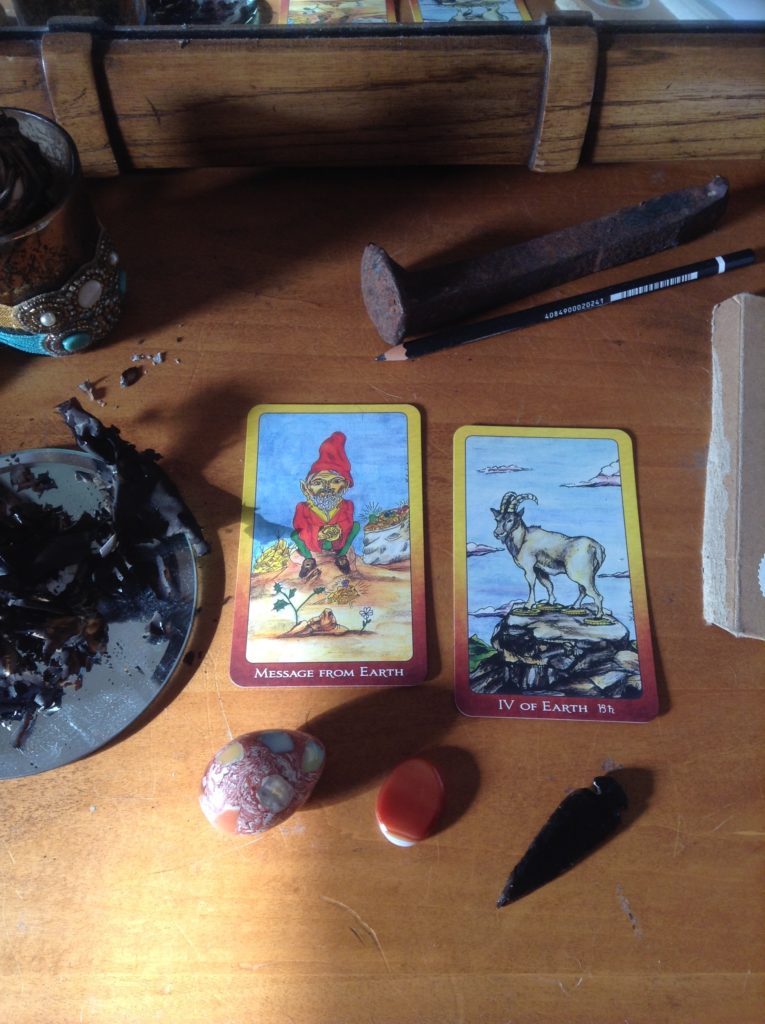
How hard it was to part with that short coffee table despite its nil economic value. How I long now for a chair I chose. How I desire for keeping such things in my life, nurturing them, getting to spend the rest of my years with them, until death do us part. How I despise the disposability with which I am expected to treat them. How I resent the ease with which I am supposed to give them up and move on.
“They are just material objects, you know. Are you that attached to things?”
Comments (0) | More: Uncategorized
I will stay loyal to the dance
February 23, 2016
I will stay loyal to the dance.
She has fed me so well over the years, in every moment of dispossession.
And all she asks for return is my time and respect.
Comments (0) | More: Uncategorized
Something Speaks
January 24, 2016
I am up until dawn, with a gaping hole in my chest.
I know you can tell that I breathe fire.
I am a horrid, hairy creature.
I’m a grotesque nightmare, woman monster.
I’m an animal, a fucking animal!
I’m a volcano, spewing blood-red lava onto your clean furniture.
I am desperate and needy.
I am fiending for your love.
I cower at your feet. Love me, love me, please.
I am a leech ready to suck your blood.
I will take over your life.
I am tits and ass.
I am exotic eyes and eyebrows.
I might as well be Kim Kardashian.
I am a one-eyed, shaded thing at the bar.
A voluptuous head of hair, unveiled and exposed, for you.
I am dying for you to see me.
I’m terrified that you will see me.
I am destroyed by the very thought of you.
I can’t sleep, I can never sleep.
I have forgotten who I am.
I must be alone. I need to be alone.
I know how to be alone.
Not black or white, I’m somewhere in the middle hues.
I am not in the news but ain’t I a woman too?
How it feels to be free? I, too, wish I knew.
I’m a soft, motherly vessel.
I’m “such a good listener.”
I am an angry woman.
Loud and hostile.
I am bitter and depressed.
I am soooo irrational.
I know you hate me so I think that I hate you.
But I love you, oh I love you!
Please, please let me love you.
Comments (0) | More: Uncategorized
Empty Room
April 14, 2015
remove the brains out of bodies
and the selves out of communities, where they could otherwise engage
with themselves and with each other.
I can’t complain, however,
when I lie down on the wooden floor, in the silence of myself
and have sixty measly minutes
to be nothing
to disintegrate, dissolve, then reappear
